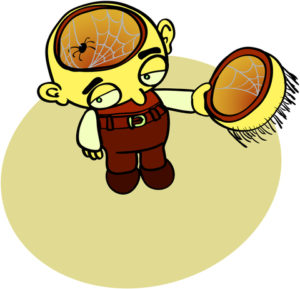
Being bullied by someone who’s passive-aggressive is the most demeaning and humiliating for a person. I say this because when these types of people insult you, they’re slick about it.
They catch you off guard, taunting you in such a way that it can be tricky to figure out who it’s aimed at. Sometimes, you don’t even know it’s directed at you until it’s way too late for you to deliver a good comeback.
Because the bully may not necessarily address it to you, and while you may be unaware, any bystanders and witnesses nearby will immediately know who the covert nastiness was meant for. It’s funny how we tend to see so much clearer from the outside.

What’s so terrible about this is that the stealthy insults are usually hurled at you in front of an audience and can quickly fly over your head. And you end up looking weak and like a clueless idiot for not catching it in time.
And even though the bully’s words are vague and unclear, they will still nibble at your self-esteem and take a chunk out of your pride whether you want them to or not. Because you usually figure it out sooner or later. It only goes to prove how vicious these covert attacks can be.
But understand that although the bully and a few others might think he (the bully) is witty or cute and that the creep slapped you with a good burn, there are reasons why these types are so slick with the mouth.

1. They’re great big cowards. Passive-aggressive bullies don’t have the guts to make a direct attack.
They hope the insults go over your head because they know that if they can confuse you and throw you off-balance, the least likely you are to jab back with a good counter-attack and make them look like a punk.
2. They think it makes them look cute. Passive-aggressiveness is also used to get attention and look intelligent in front of others. These bullies can only achieve this is to humiliate someone else and making them look (and feel) stupid.

3. To stun you and keep you silent. Often, the shock-value of the insults is such that it often leaves the recipient and bystanders speechless. Shock shuts down the ability to think clearly and causes the victim to pause for a second or two.
The target is often left stunned, standing there with their mouths hung open and unable to respond quickly and appropriately. As a result, the person looks slow and feeble-minded in bystanders’ eyes and makes the bully look smart and witty.
It can also strike fear into the target and keep them from speaking out, afraid that the bully will only verbally beat them down with more wisecracks.

4. Easy Deniability. If the insults are vague and indirect, there’s a higher chance the bully will escape accountability, should the target either catch it right off and either respond to it or report it.
The bully can then more easily misconstrue the message and defensively claim, “Oh, that’s not what I meant,” “No harm intended,” “I wasn’t referring to you,” or “You took that the wrong way.”
Understand that although the garbage that comes out of their mouths may be vile and directed at you, it will often have several different interpretations. And because of those multiple meanings, the bully can very innocently explain away the put-down and make you look overly-sensitive, paranoid, or mentally unstable.

But here’s the good news! There are ways to read between the lines and stonewall these lowlife cowards anytime they get slick-mouthed with you.
1. Listen to your gut. If that nagging feeling in the pit of your stomach sounds off and you feel weird or that something is off, don’t ignore it. Your gut feeling is always right, so go with it!
2. Quickly observe any surrounding bystanders. Make a split-second micro-glance of the witnesses and note their reactions and who they’re looking at. Notice their facial expressions and gestures. If you see any of these expressions below, and you’re likely to notice many of them together, you are the target of the insult.

a. If the witnesses’ eyes suddenly widen and they immediately look at you funny after the bully opens his mouth
b. If they alternate uncomfortable glances from the bully to you, then back to the bully.
c. If you hear light gasps and grunts of shock from the “audience.”
d. If you see their whole faces change suddenly and mouths slightly gape open.
e. If you hear soft but derisive giggles, chuckles, or laughter
f. If you see or hear snickering
Any number of these will give you a yes, and you can address the problem accordingly.
With knowledge comes empowerment!